Assistance to the Director
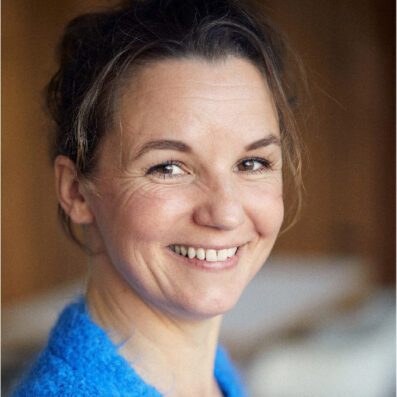
E-mail:
kristin.baars [at] zmnh.uni-hamburg.de
Tel.: +49 (0)40 7410 53821
Group „Juvenile development“
The group ‘Juvenile development’ aims to resolve the developing mechanisms of late developmental stages (i.e. adolescence). During adolescence, the structural changes are rather modest when compared to those occurring during the early stages of development. However, especially in the prefrontal cortex, a substantial functional remodeling and refinement of initial circuits occurs, leading to the emergence of mature cognitive abilities, such as attention, working memory, decision-making, emotional and social behavior.
We uncover the mechanisms underlying the adolescent reorganization of the prefrontal cortex with a special focus on the role of outputs and inputs to / from other brain areas. Moreover, we assess the contribution of this reorganization to the fine-tuning of cognitive abilities during functional and dysfunctional development. For this, we capitalize on multi-site recording from prefrontal cortex and interconnected regions in non-anesthetized mice during diverse cognitive tasks along the entire juvenile development.
The investigations enable to identify developmental time windows of particular plasticity of prefrontal circuits. These sensitive periods might represent possible time windows of intervention (e.g. enriched environment) for abnormally reorganized circuits that have been found in several mental disorders and corresponding animal models of diseases.
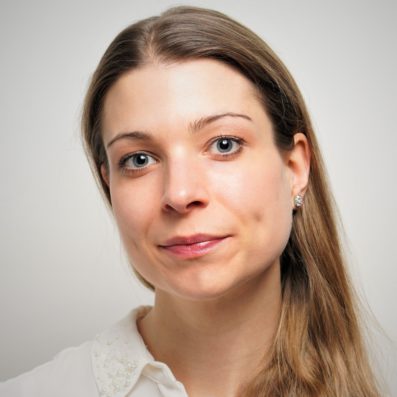
E-mail:
jastyn.poepplau[at] zmnh.uni-hamburg.de
In 2012 I finished my education as technical assistant and started to study Molecular Life Science at the University of Hamburg. As student assistant I learned a lot about the projects of the group and got more and more interested in the processes of brain development. After my Master thesis, I started in 2018 my PhD to identify the contribution of early electrical activity for the cognitive performance at adulthood. In end of 2021 I finished my PhD and got awarded with the Burkhart Bromm prize for cognitive neurobiology. Since 2021 I am the leader of the group “Juvenile development”. I love the field of electrophysiology and have a special interest in the adolescent period of development.
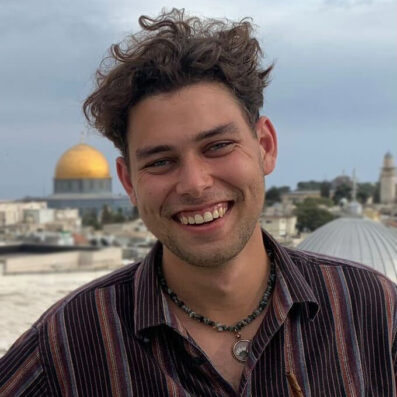
E-mail:
anton.offermanns[at] zmnh.uni-hamburg.de
During medical school my interest in neuroscience has emerged and in 2021 I paused my studies to start working on my doctoral thesis in the Institute of Developmental Neurophysiology. In my project I investigate the maturation of parvalbumin- and somatostatin-positive interneurons and their role in the local networks of the prefrontal cortex between prejuvenile and adult age in mice. Therefore, I make use of electrophysiological extracellular recordings combined with optogenetics.

E-mail:
lukas.muenster[at] zmnh.uni-hamburg.de
Becoming more and more fascinated by how the brain gives rise to perception and behavior, I pursued a degree in Neurochemistry at Stockholm University after completing my Biochemistry Bachelor’s in Jena, in 2021. My Master’s thesis project in Matthew Larkum’s lab in Berlin then introduced me to systems neuroscience, studying thalamocortical circuits during perceptual decision-making. Seeking yet a broader network-level perspective of the brain, I joined Andreas Engel’s lab in Hamburg to investigate ferret cortical networks during rest and sensory processing. I soon realized however, my core interest lies in cell type–specific circuit neuroscience, with growing curiosity about brain development and evolution. Thus, in 2025, I joined the Opatz lab for my dissertation project, where we use electrophysiology and optogenetics to study prefrontal circuits underlying cognitive flexibility in freely moving adolescent mice.
Team „Neuronal processing“
Neural activity in the developing brain has several unique features. It is characterized by long periods of electrical silence that alternate with sporadic bursts of activity, by neurons firing in a highly correlated manner and at extremely low rates and is only weakly modulated by behavioral state. Equally unique are the dynamics with wich neurons interact and communicate, both on a microscopic and macroscopic level. To understand how the logic of neural interactions evolve throughout ontogeny, we investigate the functional development of the prefrontal and primary sensory cortices, of the hippocampus and of subcortial nuclei. Using a variety of analytical and experimental approaches, we investigate the microcircuitry and the long-range communication between these brain areas and their relevance for the emergence of cognitive abilities.
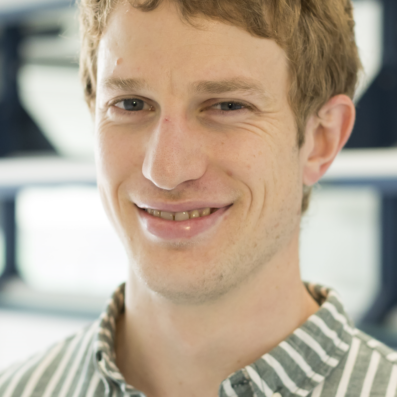
E-mail:
mattia.chini [at] zmnh.uni-hamburg.de
I studied medicine and surgery at the University of Padova, but never had too much passion for clinics. For this reason, just after my studies, I spent a year in Tononi’s lab investigating sleep function and regulation. Convinced of doing science, in summer 2016 I then joined the Opatz lab for my PhD. My interest is the development of cortical microcircuits in health and disease, with a particular focus on the interneuron side of things. I also have a (nerdy) fascination for the neuro-immune cross talk, and microglial cells in particular, which I give vent to when nobody is looking at me.
[Personal Profile]
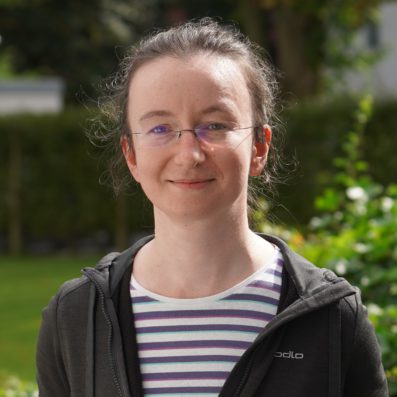
E-mail:
irina.pochinok [at] zmnh.uni-hamburg.de
I studied Applied Mathematics and Informatics, and then worked in software development industry for nine years. 2018, my interest in neuroscience brought me to the University of Bremen where I started the master’s program. In September 2019 I joined the Opatz lab for doing my lab rotation project.

E-mail:
henrik.ostby [at] zmnh.uni-hamburg.de
After completing my master’s in neuroscience at the Norwegian University of Science and Technology, which aimed to characterize the role of the serotonergic system in chronic stress resilience, I joined the Opatz-lab in the summer of 2020 as a PhD-student. Here in the Opatz-lab I aim to characterize the developmental trajectory of prefrontal – primary sensory connectivity in early life and its functional importance for later life in models of both health and disease. To investigate this, I combine in vivo multi-site electrophysiological recordings, optogenetic tools, neural circuit tracing techniques and behavioral testing.

E-mail:
guoming.man [at] zmnh.uni-hamburg.de
I joined the Opatz lab in Fall 2021 as a PhD student. Previously, I obtained my master’s in neuroscience at the University of Bonn where I looked at hippocampal rate remapping in a mouse model of epilepsy. Here in the Opatz lab, I employ electrophysiological techniques among others to study fronto-striatal network maturation during early postnatal development, both in health and disease, with a further goal to understand Autism. In my spare time, I enjoy fitness, cooking, and being a closet philosopher.
Team „Mental disease“
Abnormal functional connectivity and communication within prefrontal-hippocampal networks has been identified as a fundamental mechanism underlying cognitive deficits in major neuropsychiatric disorders. Clinical observations suggested that this dysfunction emerges early in life, long before the onset of symptoms. Using mice models mimicking the combined genetic and environmental etiology (GE) of psychiatric risk, we recently demonstrated that the initiation of functional communication within prefrontal-hippocampal networks during early development is already disturbed. Our team aims to elucidate the cellular mechanisms accounting for abnormal prefrontal-hippocampal network maturation in neuropsychiatric disorders.
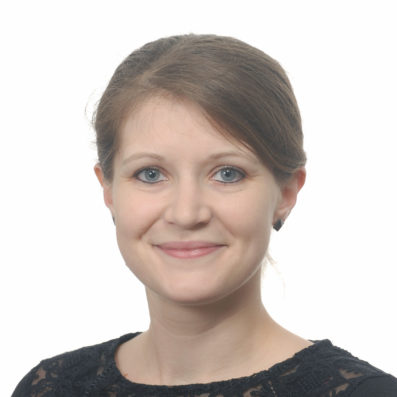
E-mail:
anne.guenther [at] zmnh.uni-hamburg.de
I studied Biology at the University of Cologne and I did my PhD in Arnd Baumann’s lab at the Research Center Jülich on the topic of pacemaker channel contribution to neuronal processing and learning behaviors. From 2016 to 2020, I was a postdoc in Thomas Launey’s lab at the RIKEN institute in Tokyo, working on molecular mechanisms underlying cerebellar LTD. I joined the Opatz lab in 2020 to focus on assessing the involvement of microglia in early prefrontal development, specifically in the context of neuropsychiatric disorders.‘
Team „Cognitive olfaction“
Early sensory processing is mandatory for the functional development of sensory brain areas. However, it is unknown whether early sensory experience shapes the development of cognitive abilities. To address this question, we take advantage of the olfactory system as one of the earliest developed senses. The olfactory system is functional at birth and new born rodents use olfactory information for learning and cue-directed behaviors, critical for their survival. Further, in contrast to input from other sensory modalities, olfactory information reaches cortical areas directly without thalamic relay. Therefore, the olfactory system is tightly coupled to the hippocampal formation and to the frontal cortex, key structures for cognitive abilities, such as memory and decision making. We investigate the maturation of cognitive areas in relation to the olfactory system and the consequences of developmental impairment of olfactory activity for cognitive abilities.
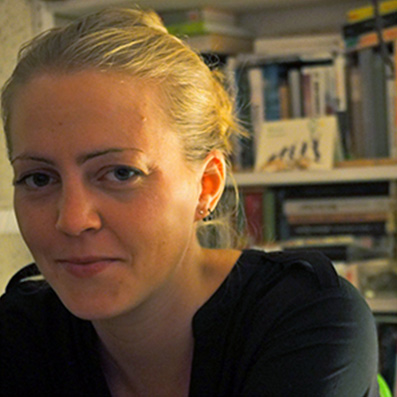
E-mail:
johanna.kostka [at] zmnh.uni-hamburg.de
I studied Biophysics at the Humboldt University in Berlin and finished the research master Brain and Cognitive Science at the University of Amsterdam. In 2015 I started my PhD project in this group, which focuses on the question whether early sensory experience shapes neuronal network maturation and promotes later cognitive abilities. In contrast to other sensory modalities the sense of smell is already fully functional at birth and olfactory information reaches higher brain regions without by passing the thalamus. More specifically, I am investigating the influence of mitral cell activity in the olfactory bulb (OB) on the activity patterns of the LEC during early development. For this, I combine in vivo whole-cell patch clamp recordings with extracellular field potential recordings of neonatal mice.
[Personal Profile]

E-mail:
yunan.chen [at] zmnh.uni-hamburg.de
Since late 2019 I joined the lab for my doctoral project. My main aim is to investigate how the sensory entrainment of limbic systems is changing over neural development from neonatal to juvenile periods, with electrophysiological recordings. Alongside this, I’m interested in the potential important role of olfactory information processing during neonatal ages for later cognitive maturation. In leisure time, I like audio editing and enjoying a cup of tea. I’m also a fan of Chelsea football club.
[Personal Profile]
Technical Assistants

E-mail:
annette.marquardt [at] zmnh.uni-hamburg.de
I work since 2012 as technician in the lab of Prof. Ileana Hanganu-Opatz where I am involved in several projects. My field of work includes the preparation of brain slices mainly from the olfactory bulb, prefrontal cortex and hippocampus, followed by immunhistochemistry and microscopy. Moreover, I am involved in tracing of axonal connections using Fluorogold, Biotinylated dextran amine and Cholera toxin B in young rats and mice. In addition, I am assisting with in utero electroporations, behavioral testing and PCRs. In my spare time I do a lot of sports as a coach in Aerobic and dance or as a member in a tennis team.

